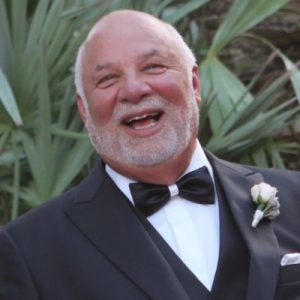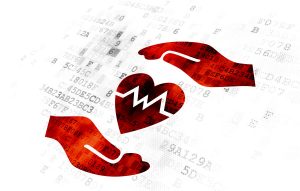Decades of Experience: Heart Smart

Steve Seltzer
It wasn’t a carefully planned career move when Steve Seltzer, Heart Smart CEO and president, moved into the heart monitoring business. It was personal. When Steve was in his 20s selling surgical supplies, his father had a heart attack. Steve questioned why he hadn’t caught the symptoms, and his father’s cardiologist didn’t have any answers. So, a few years later, when a position with a Holter manufacturer opened up, he knew what he had to do.
Decades later, Seltzer is still in the Holter industry. Nowadays, he mostly deals directly with physicians. He estimates that around half his work is education.
“Many of the doctors in private practice are very busy,” Seltzer says. “They don’t have time to become an expert on any one aspect of their practice.”
He points out that this is a growing problem as technology advances and changes — and doctors have to keep up.
When it comes down to it, says Seltzer, “a lot of doctors really don’t understand what they can do with Holter devices.”
And what can they do with Holter devices?
“It’s just like when your car makes noise, and you bring it to the mechanic, and it doesn’t make the noise,” he says, “and then two days later it makes the noise.”
Similarly, doing a brief EKG isn’t usually enough to capture evidence of what’s going on in a patient’s full cardiac picture. Even a Holter monitor often can’t do its job if doctors don’t give it enough time.
“Even though a NEMon product can go for 14 days,” Seltzer says, “typically, a patient will wear a Holter for one, maybe two days.”
Symptoms, he says, can be elusive and may not happen in the first few days of monitoring. A Holter is the key to ruling out cardiac problems more accurately and effectively — which ultimately saves lives.
The Holter has come a long way since its invention in 1962. Now, instead of only being able to use them in hospitals, patients can bring Holter monitors home with them to wear unobtrusively for up to two weeks. Doctors can purchase their own systems, use NEMon automated algorithms to analyze data, and prepare reports — or they can analyze every single beat manually. The latter method is, Seltzer says, absolutely the more accurate way to interpret data, but not every doctor has time for it. That’s why doctors can use Seltzer’s certified technicians to create the most accurate reports possible.
Seltzer estimates he’ll work for another eight or 10 years before retiring — and he doesn’t seem to be in a hurry.
“I’m still relatively young,” he says.
And of course, he’s in no rush to leave a job that’s so rewarding.
“I definitely know that during these 40-some odd years … we’ve saved many, many lives,” Seltzer says. “That I know for sure.”
[cta]Contact NEMon professionals to learn more about the different licenses we offer and how they can suit your business. Get in touch by email at info@nemon.com, or call us 978-461-3992 or toll-free at 866-346-5837 option 2.[/cta]

